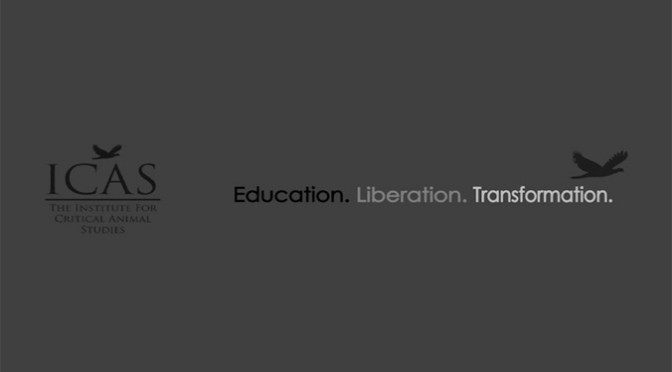The Institute for Critical Animal Studies is now accepting proposals for their 2nd annual conference on eco-ability. The conference will be hosted online on July 26, 2014. Deadline for submissions is July 11, 2014.
Read the call for papers below.
Call for Papers
“Engaging with Eco-ability”
2nd Annual Conference
July 26th, 2014
TO SUBMIT A PROPOSAL: Send an e-mail to ecoability@gmail.com with an abstract of approximately 300 words of your proposal for the conference. Please include a short biography of yourself of approximately 100 words. Proposals will be accepted on a rolling basis, but are due by NO LATER THAN July 11th, 2014.
We are looking for papers and presentations concerning, but not limited to, the following topics:
- Eco-Ability Intersectional Theories – We are looking for intersectional innovative liberatory theories between dis-ability studies, environmental ethics, critical animal studies, queer studies, critical race theory, transnational feminism, and other radical theories that promote activism.
- Activist Stories of exclusion of people with dis-abilities in the animal advocacy movement – What are the problems within the animal advocacy/liberation movement that create tension with dis-abled advocates? How can these problems be resolved? What animal advocacy campaigns, projects, events, protests, language, programs, organizations, theories, and practices are exclusionary and ableist to those with dis-abilities?
- Activist Stories of exclusion of animal advocacy/liberation in the dis-abilities rights movement – How are animal advocates excluded from discussion within dis-ability rights movement? How can these exclusions be resolved? What effective routes of activism can we take to create more effective coalitions between these two struggles? What dis-ability rights campaigns, projects, events, protests, language, programs, organizations, and practices are exclusionary and speciesist to those involved in the animal advocacy movement?
- Critiques of Service Nonhuman Animals and Animal Testing/Vivisection – Vivisection and service nonhuman animals are often touted as the “cure” for people with dis-abilities. What does it mean to try to “cure” dis-ability? Is what science does, such as testing on nonhuman animals, while searching for “cures” worth the cost? What is our responsibility to nonhuman animals in relation to people with dis-ability and vice versa?
- Activist stories of being included or excluded from the animal, dis-ability, and environmental movements – What are the problems within the animal, dis-ability, and environmental movements that creates tension between the different movements and advocates? How can these problems be resolved? How are these problems being solved? What animal, Earth, and dis-ability campaigns, projects, events, protests, language, programs, organizations, theories, and practices are exclusionary?

